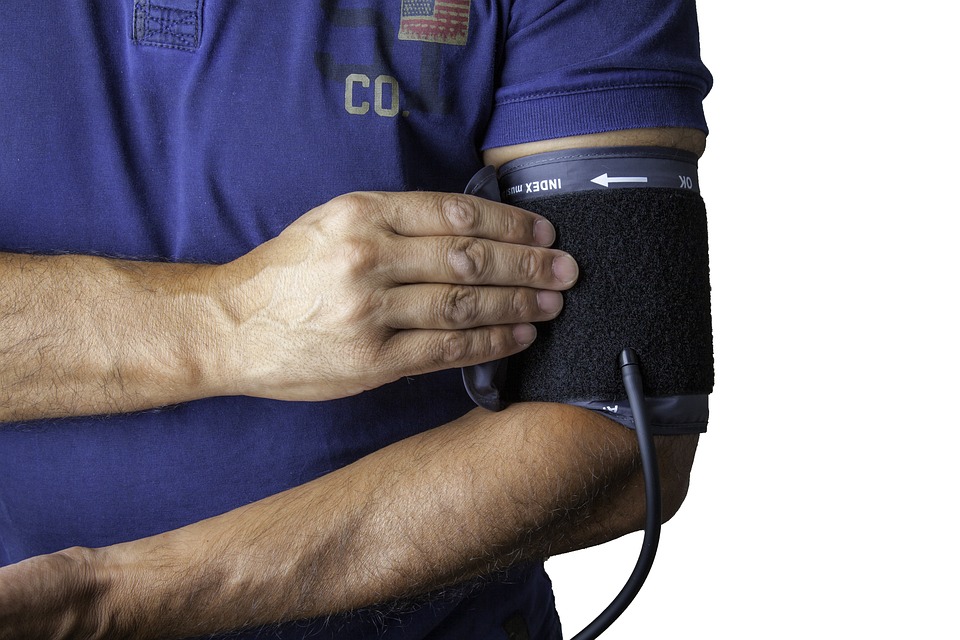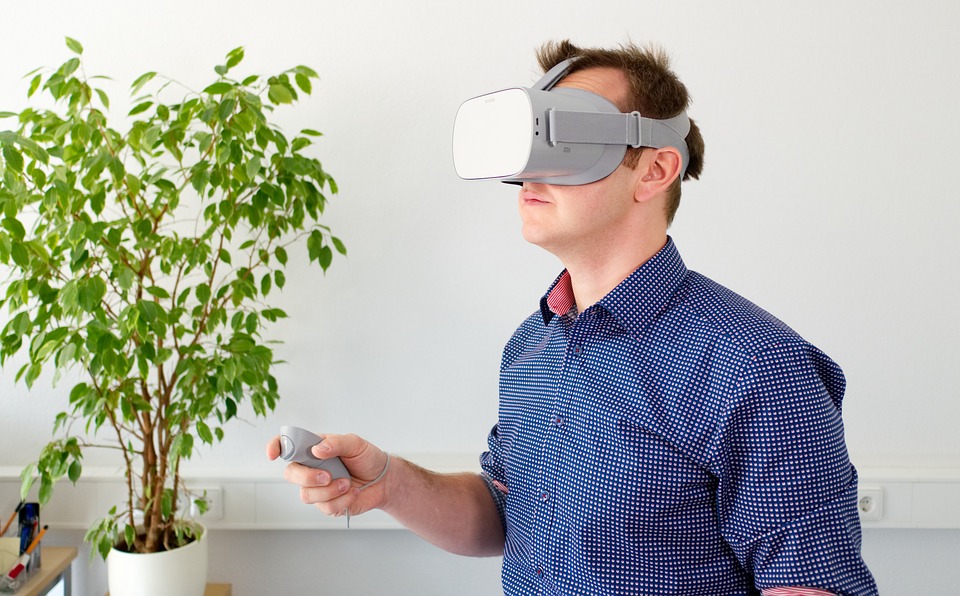Fact checked by Dr. Mohd Shafiz Mohd Zaini

https://pixabay.com/photos/skeleton-dna-human-body-biology-7090995/
Digital transformation initiatives have revolutionized customer experience and convenience across all industries worldwide. They laid the foundation for modern-day business models. They allowed healthcare organizations to harness the power of the latest digital technologies and health data to improve treatment and patient outcomes.
Digital transformation allows healthcare companies to integrate high-end technologies, such as health data analytics and artificial intelligence, into all areas of healthcare organizations to boost their value and efficiency.
The primary goal is to take the entire healthcare sector to the next level and replace outdated, traditional treatment technologies and methods. According to statistics, digital transformation is achieving annual growth of 10.4% at a steady rate. It has already surpassed the $1.3 trillion mark globally.
What is digital transformation in healthcare?

https://pixabay.com/illustrations/heart-care-medical-care-heart-1040229/
Digital healthcare refers to using the latest technologies, data analysis, and management practices to transform medical care and patient treatment processes.
Thanks to the latest digital technologies, healthcare providers can access digital transformation initiatives, health monitoring devices, and connected medical devices for the best patient records maintenance practices. The entire healthcare sector can improve its processes to provide sustainable value to healthcare organizations, professionals, and patients.
It all comes down to employing and embracing advanced solutions, such as the latest data management and artificial intelligence technologies, to innovate patient treatment and medical care practices. The 2021 study showed that digital transformation helped more than 92% of healthcare providers to achieve better performance.
Benefits of healthcare digital transformation

https://pixabay.com/illustrations/digitization-healthcare-health-6939538/
Digital transformation in healthcare benefits patients, healthcare organizations, and the entire healthcare industry.
Benefits for patients

https://pixabay.com/vectors/doctor-lady-examine-child-kid-37707/
Personalized and enhanced patient experience
Healthcare companies implementing digital services and new technologies can provide more accurate health diagnoses to ensure better health outcomes. Digital healthcare models enable more personalized treatment and a better patient experience.
Better communication with healthcare experts & real-time access to patient data

https://pixabay.com/photos/hands-massage-treatment-fingers-1327811/
Digital transformation allows patients to use various health monitoring devices and communicate with healthcare professionals through different communication channels. They can quickly obtain digital services that can help to improve patient treatment and outcomes.
Thanks to the development of electronic medical records, patients can use healthcare portals to receive the best treatment strategies and prescriptions. Patients can instantly access their medical records and share them with their doctors.
One of the most significant benefits of digital transformation in healthcare is increased accessibility to patients’ data and medical history. Digital healthcare companies provide patients with access to patient data through online portals, email, and personal healthcare records using various devices to track patient health, personal health data, and other important metrics in real-time.
Benefits for medical institutions and health care providers
Reduced costs

https://pixabay.com/photos/coins-banknotes-money-currency-1726618/
Since digital transformation in healthcare allows for new business models and better strategic planning, healthcare managers and institutions can rely on digital innovation to improve patient service and health outcomes. They can enhance patient care services and make them more affordable while reducing operations costs.
Optimized workflows and better patient services

https://pixabay.com/photos/woman-doctor-surgeon-physician-2141808/
With real-time access to data generated from patient health records, medical institutions and healthcare companies can reduce the patient examination and treatment time, ensuring better health and patient care practices.
Benefits for the healthcare industry

https://pixabay.com/photos/stethoscope-hospital-doctor-health-840125/
Streamlined communication between healthcare organizations
The entire medical industry depends on communication to ensure patients receive the health care they deserve. The digital transformation journey allows medical institutions to maintain smooth, safe, and efficient communication.
Better time management

https://pixabay.com/photos/time-alarm-clock-clock-watch-hours-2980690/
Time is of the essence when it comes to patient care. Acting promptly can save lives and result in better patient outcomes. Since digital healthcare offers access to real-time big data and 24/7 accessibility to patients’ medical records, healthcare providers can ensure each patient receives care and service promptly.
Innovative solutions for patients

https://pixabay.com/photos/blood-pressure-monitor-health-1749577/
New healthcare models are patient-centric, using new technologies, digital services, and strategic planning to enable more precise diagnosis and treatment. That’s why healthcare institutions can provide patients with more personalized and effective care treatment.
4 types of digital transformation

https://pixabay.com/photos/surgery-hospital-1807541/
The four main types of digital transformation include:
Process transformation – digital transformation technologies like AI, machine learning, APIs, advanced analytics, and big data allow healthcare organizations to reinvent their practices, lower costs, improve patient care, reduce waiting times, and secure patients’ private and financial information.
Business model transformation – digital healthcare sector focuses on delivering the highest value to patients by transforming the business model of medical companies.
Domain transformation – refers to redefining and reinventing medical services and products that can take health care to the next level.
Cultural/organizational transformation – medical companies that undergo complete digital change are more open to embracing the benefits such as decentralized decision-making, more agile workflows, automated processes, data-driven mindsets, etc.
Digital technology trends in healthcare

https://pixabay.com/photos/apple-watch-technology-internet-916402/
Like other industries, the health care industry has been able to move forward thanks to the immense benefits of digital technology. The rise of digital healthcare empowered countless healthcare organizations to provide top-class treatment and ensure better outcomes.

https://pixabay.com/photos/analysis-biochemistry-biologist-2030261/
It links doctors directly to patients and allows them to tap into the data generated in their medical records. The results are improved clinical decision-making, better health outcomes, more effective treatments, and personalized medical care for every patient. With that in mind, let’s look at the latest digital healthcare trends.
Connected medical devices, patient portals & medical data aggregation

https://pixabay.com/photos/covid-19-health-coronavirus-corona-5169689/
Wearable technology devices allow healthcare professionals to gather essential medical data of patients in real-time and create a clear picture of patients’ conditions and overall health. They can quickly determine the best treatment method based on the data gathered.
Patient portals are among the leading digital transformation trends in the healthcare industry. These online portals allow patients to chat with doctors, schedule appointments, and access their medical care history and records. They can also share their medical history with multiple healthcare institutions, view test results, check prescriptions, e
Digital healthcare allows medical institutions to gather data from patient portals and aggregate it in one unified place. Data aggregation helps healthcare providers to improve clinical decision-making and make more timely and data-driven treatment decisions. Doctors from different parts of the world can create detailed patient profiles in minutes.
Wearable medical devices are growing in popularity

https://pixabay.com/photos/doctor-medical-medicine-health-563428/
Wearable medical devices play a crucial role in the digitalization of healthcare. They rely on the latest digital technologies to gather personal medical records and patient data through various patient-friendly medical devices.
Medical institutions can gather patient data in real-time and provide patients with better treatment and timely service. In the past, patients had to physically visit their doctor if they were experiencing any health issues.
They also had to wait a long time to receive relevant health information. Thankfully, that’s not the case anymore. Wearable medical devices allow patients and healthcare professionals to stay in touch and maintain constant communication.
These medical devices provide healthcare providers with accurate, real-time data and allow them to deliver quick treatment to high-risk patients, saving countless lives in the process. Patient portals and medical devices, including wearables, play a crucial role in the modern-day treatment and patient care.
How virtual reality helps with patient treatment

https://pixabay.com/photos/vr-virtual-reality-glasses-3411378/
Therapeutic virtual reality (TVR) is a widely used method in healthcare. It refers to the use of immersive and realistic computer-generated technology in medical care that has a range of applications, from explaining complex health conditions and medical procedures to virtual doctor visits.
A motion-sensing VR headset allows the patient to enter a virtual world and receive the necessary medical treatment or care. VR is used for pain management, pain control, and proper treatment and medication.
It can also help with many medical conditions, ranging from sleep and mood problems to various types of pain, orthopedic problems, and cancer. VR helps both patients and healthcare providers.
The latter can better serve their patients and provide them with more personalized patient experiences. On the other hand, patients can educate themselves on the best medical treatment practices and learn how to better deal with many medical conditions, including chronic pain, mental health issues, etc.
The evolution of EHR

https://pixabay.com/photos/nurse-heart-pulse-stethoscope-3624463/
Healthcare digital transformation initiatives and technologies rely on big data to enhance every aspect of medical care and patient treatment. The main objective is to overcome the challenges by developing new medical, patient-centric healthcare and treatment models.
That’s why health and patient data management is crucial in the modern-day healthcare industry. One of the most significant benefits of digital healthcare transformation is the evolution of electronic health records (EHRs).
Also known as e-health data systems, EHRs play a critical role in developing the most patient-centric health data management methods.
Thanks to digital transformation, healthcare organizations can develop secure databases for gathering, accessing, storing, and encrypting patient data to create patients’ private and personalized medical records.
These medical records are fully shareable on-demand with medical specialists, laboratories, and healthcare providers worldwide.
5G mobile technology could benefit healthcare

https://pixabay.com/photos/network-5g-cellular-technology-6926764/
Another essential aspect of digital healthcare is the safe and timely delivery of medical information and patient data. 5G’s features could help to improve an array of critical aspects of healthcare, including:
Telehealth;
Remote surgery;
Large medical files transfers;
Tracking patient health and movement;
Real-time patient monitoring via wearables;
Patient support;
Continual treatment data delivery.
5G, combined with the internet, allows the healthcare industry to improve data harvesting, processing, and analysis.
Blockchain can help to keep electronic health records secure

https://pixabay.com/photos/network-earth-blockchain-globe-3537389/
Blockchain is vital to maintaining the highest levels of cybersecurity. Because of its unhackable encryption and other security features, the number of blockchain-based healthcare applications grows daily.
Aside from its immense power to secure any financial healthcare-related transactions, it can also decentralize entire computer networks. With blockchain, healthcare and medical companies can:
Avoid cybersecurity threats and prevent attacks, such as data breaches;
Unify fragmented medical records of patients;
Identify and eliminate inaccuracies and inconsistencies in patient’s health data;
Provide patients with a secure distributed ledger for safer sharing of their data and easier access to their private health records.
Top challenges of healthcare digital transformation

https://pixabay.com/photos/adult-ambulance-background-care-4402808/
Digital transformation is a complex and ongoing process that requires a healthcare company to develop a data-driven business strategy to beat the modern-day challenges. These companies face many challenges, including:
Cybersecurity threats;
Cost reduction;
Resistance to change;
HIPAA compliance.
Thankfully, the latest digital technology development provides solutions to these challenges.
***
Digital transformation in healthcare is quickly becoming more than an option for millions of medical companies. It helped to develop an array of advanced healthcare services, leading to better patient treatment and experience.
Resources:
https://www.statista.com/statistics/1134766/nominal-gdp-driven-by-digitally-transformed-enterprises/
https://www.webmd.com/a-to-z-guides/features/virtual-reality-medicine
- Nano Medic Care
- July 12, 2022
- 5:22 pm


